If you’re in the market for a water heater, let me tell you why Reliance should be at the top of your list. As someone who’s lived through the chaos of cold showers and skyrocketing energy bills, I’ve found Reliance water heaters to be a game-changer.
They’re reliable, efficient, and packed with features that make life easier. In this article, I’ll share my personal experience, break down the pros and cons, offer maintenance tips, compare Reliance to other brands, and answer common questions.
By the end, you’ll see why Reliance is worth every penny.
My Experience With Reliance Water Heater
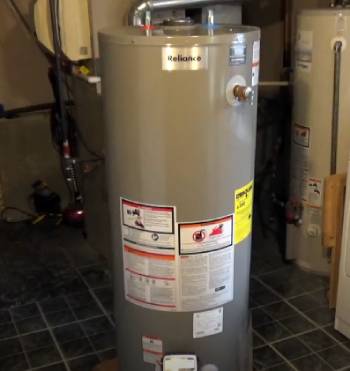
A few years ago, I was stuck with an old, clunky water heater that seemed to have a personal vendetta against hot showers.
It was a constant battle—either the water was lukewarm, or the heater was making noises like it was auditioning for a horror movie.
Fed up, I started researching and landed on a Reliance 50-gallon natural gas water heater.
I chose it because it promised energy efficiency and a solid warranty, and I wasn’t disappointed.
Installing it was a breeze, thanks to the clear instructions and a local plumber who knew his stuff. The first thing I noticed was how quickly it heated water—hot showers were back on the menu!
The self-cleaning feature was a lifesaver, reducing the sediment buildup that plagued my old unit. I also loved the electronic control panel with its LCD display; it made tweaking the temperature a cinch. Over time, I noticed my energy bills dropping, which was a pleasant surprise.
Sure, there were minor hiccups—like a finicky pressure relief valve that needed replacing—but Reliance’s customer service was quick to help. Three years in, it’s still running like a champ, and I’m convinced it’s one of the best investments I’ve made for my home.
Pros of Reliance Water Heaters
Reliance has a lot going for it, and I’m not just saying that because I’m a fan. Here’s why these heaters stand out.
- Energy Efficiency That Saves You Money
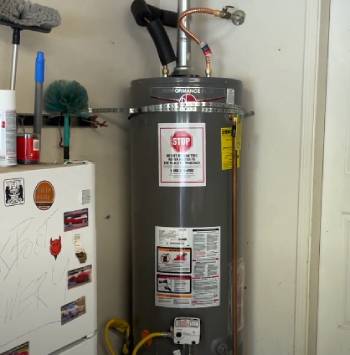
One of the biggest reasons I went with Reliance was its focus on energy efficiency.
Many models, like my 50-gallon natural gas unit, are Energy Star certified, which means they use less power to heat water.
According to Reliance, their electric heat-pump water heaters can pay for themselves in about three years due to energy savings.
I’ve seen my gas bill drop by about 10% since switching, which adds up over time. Features like low NOx burners and high-quality insulation keep energy waste to a minimum, making these heaters a win for both your wallet and the planet.
- Wide Variety of Models
Whether you live in a small apartment or a sprawling house, Reliance has a model for you. They offer everything from compact 30-gallon tanks to massive 100-gallon units, plus tankless options for endless hot water. You can choose between gas, propane, or electric models, and some even come with hybrid heat-pump technology.
I went with a mid-sized gas model because it suited my family of four, but the range of options means you can find something tailored to your needs, whether you’re a solo dweller or running a busy household.
- Impressive Warranty Coverage
Reliance’s warranties are a big selling point. Most models come with 6- to 12-year warranties on tanks and parts, and some tankless components even get up to 15 years. My unit has a 9-year warranty, which gave me peace of mind knowing I wouldn’t be left high and dry if something went wrong.
Unlike some brands that nickel-and-dime you for labor, Reliance often includes labor coverage for the first year, which saved me when I had to replace a faulty valve. Just make sure you follow their maintenance guidelines to keep the warranty valid.
- Self-Cleaning Technology
Sediment buildup is the enemy of water heaters, causing leaks and reducing efficiency. Reliance tackles this with self-cleaning models that minimize sediment accumulation. My heater has this feature, and I’ve noticed it needs less frequent flushing than my old unit.
This not only extends the heater’s lifespan but also cuts down on maintenance hassles. If you’ve ever dealt with a tank clogged with gunk, you’ll appreciate how much time and effort this saves.
- User-Friendly Features
Reliance heaters are designed with you in mind. The electronic control systems on many models, including mine, feature large LCD displays that make it easy to adjust settings and monitor performance. Some even have Wi-Fi connectivity, letting you control the heater from your phone.
I don’t have the Wi-Fi model, but I can see the appeal of tweaking the temperature while lounging on the couch. The piezo igniter on gas models also makes starting the heater a snap—no fumbling with matches.
Not-So-Good Parts of Reliance Water Heaters
No product is perfect, and Reliance has its quirks. Here’s what I’ve noticed that might give you pause.
- Customer Service Inconsistencies
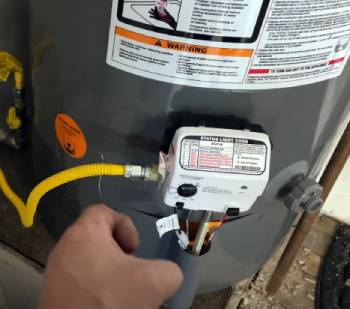
While my experience with Reliance’s customer service was solid, I’ve heard mixed reviews from others.
Some folks rave about quick responses and helpful technicians, but others have complained about long wait times or unhelpful support.
When I needed a replacement valve, the process was smooth, but I’ve read stories of people waiting weeks for parts or dealing with unresponsive staff.
It seems to depend on where you live and who you get on the phone, which can be frustrating.
- Initial Cost Can Be High
Reliance heaters aren’t the cheapest upfront. My 50-gallon model set me back about $700, not including installation, which is pricier than some budget brands like GE. Tankless models can cost upwards of $1,000, which might be a stretch if you’re on a tight budget.
That said, the energy savings and durability often make up for the initial hit, but it’s something to consider if you’re not ready to shell out upfront.
- Occasional Quality Control Issues
I’ve come across reports of Reliance heaters arriving with defects, like leaks or faulty components. My unit had a minor issue with a leaking hex screw right after installation, which was annoying but fixed under warranty.
Others have mentioned similar problems, like defective heating elements or pressure relief valves. While these issues are rare, they’re worth noting, especially if you’re buying online and can’t inspect the unit beforehand.
- Rental Program Pitfalls
In some areas, especially Canada, Reliance offers a rental program for water heaters, which sounds convenient but has drawbacks. The monthly fees—ranging from $20 to $50—can add up to thousands over the 10- to 20-year rental term, far exceeding the cost of buying outright.
I opted to purchase mine, but I’ve heard from friends in Ontario who felt trapped by rising rental costs and tricky cancellation policies. If you’re considering renting, do the math to see if it’s worth it long-term.
Maintenance Tips For Reliance Water Heaters
Keeping your Reliance water heater in top shape is easier than you might think. Here are my go-to tips to ensure it lasts as long as possible.
- Flush the Tank Regularly
Even with self-cleaning models, flushing your tank every 6-12 months is a must to remove sediment. I learned this the hard way with my old heater, which started failing because of buildup. To flush, turn off the power or gas, shut off the cold water supply, and attach a hose to the drain valve at the bottom.
Open the valve and let a few gallons drain into a bucket. Stir up the sediment by briefly opening the cold water valve. It’s a quick job that keeps your heater running efficiently.
- Check the Anode Rod
The anode rod protects your tank from corrosion, but it wears out over time. I check mine every 2-3 years by unscrewing it (it’s usually at the top or attached to the hot water outlet). If it’s less than half an inch thick or coated in calcium, replace it.
My Reliance came with a magnesium anode rod, which is great for corrosion resistance, but I swapped it for an aluminum one because my water is hard. This simple swap can add years to your heater’s life.
- Insulate Pipes and Tank
To boost efficiency, I wrapped my hot and cold water pipes with foam insulation. It’s cheap—about $10 for a pack—and prevents heat loss. I also added an insulating blanket around the tank, cutting it to fit around the temperature control and pressure relief valve.
Just don’t cover the top of the heater, as it needs ventilation. This trick has helped keep my energy bills down, especially in the colder months.
- Adjust the Temperature
Reliance recommends setting your heater to 120°F to balance comfort and efficiency. I used a screwdriver to adjust the temperature dial under the tank’s cover, and it shaved about 5% off my energy costs.
If you’re going on vacation for more than three days, turn the thermostat down or off to save even more. Just remember to turn it back up when you return unless you enjoy cold showers!
- Inspect the Pressure Relief Valve
The temperature-pressure-release (TPR) valve is a safety feature that can fail, as I learned with my unit. Test it yearly by lifting the valve’s tab to release a bit of water. If it keeps dripping, replace it.
I had to swap mine out after a year, and it cost about $20 and 10 minutes of my time. A faulty TPR valve can cause leaks or, worse, pressure buildup, so don’t skip this step.
Comparison of Reliance Water Heater With Other Brands
Let’s see how Reliance measures up against Fast Water Heater, American Standard, and State Water Heaters. I’ve broken it down to give you a clear picture of what each brand brings to the table.
- Reliance Vs. Fast Water Heater
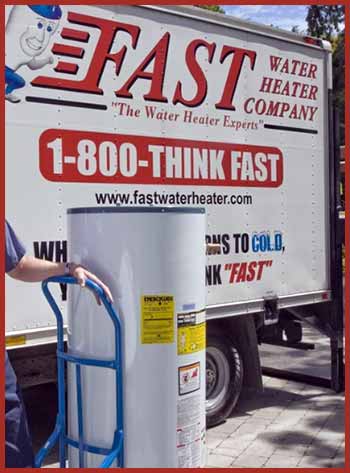
Fast Water Heater, a service-focused brand in the Pacific Northwest, doesn’t manufacture its own units but installs and services models from various manufacturers, including Reliance.
My Reliance 50-gallon gas heater, with its 81-gallon first-hour rating (FHR) and 9-year warranty, feels like a steal compared to Fast Water Heater’s offerings, which often rely on third-party brands like A.O. Smith or Rheem.
Fast Water Heater emphasizes quick installations and maintenance, but their pricing can be steep—sometimes $200 more than buying a Reliance unit directly from a retailer like Ace Hardware.
Their service is top-notch for repairs, but if you’re looking for a branded product with consistent features like self-cleaning technology, Reliance has the edge for direct purchases.
- Reliance Vs. American Standard
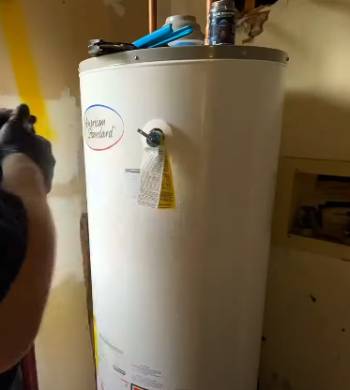
American Standard, a trusted name since 1875, offers a robust lineup of gas, electric, and tankless water heaters.
Their 50-gallon gas model boasts an 86-gallon FHR, slightly outperforming my Reliance’s 81 gallons, and features a glass-lined tank for corrosion resistance.
However, American Standard’s models are pricier—often $100-$200 more than Reliance—and lack the Wi-Fi connectivity some Reliance units offer.
American Standard’s warranties (6-12 years) are comparable, but their units are harder to find at big-box stores, often requiring a plumbing supplier.
I chose Reliance for its affordability and availability, but American Standard is a strong pick if you want premium durability and don’t mind the cost.
- Reliance Vs. State Water Heaters
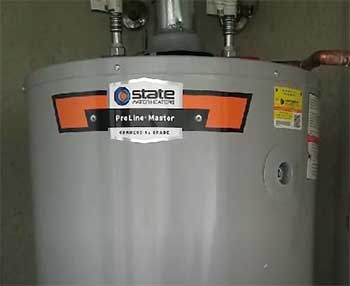
State Water Heaters, owned by A.O. Smith like Reliance, produces over 500 models, including a 50-gallon condensing gas unit with a 0.9 Uniform Energy Factor (UEF) that’s Energy Star certified.
My Reliance model has a slightly lower 0.67 UEF but costs less—around $150 cheaper than State’s comparable unit.
State’s self-cleaning technology and leak detection sensors are similar to Reliance’s, but State’s 6-10 year warranties are a touch shorter than Reliance’s 9-12 years for tank models.
State also offers a unique “Scout” model for manufactured housing, which Reliance lacks.
For most homes, Reliance offers better value, but State’s high-efficiency condensing models are ideal for eco-conscious buyers.
Frequently Asked Questions (FAQ)
Reliability depends on your needs, but A.O. Smith, Rheem, and Bradford White consistently top the list. A.O. Smith’s professional-grade models are praised for durability, while Rheem offers strong warranties and smart features. Bradford White’s American-made heaters are plumber favorites. Reliance, made by A.O. Smith, holds its own with solid performance and warranties, but it’s slightly more budget-focused. Based on my experience and research, A.O. Smith edges out for top reliability, but Reliance is a close contender for value.
Reliance water heaters typically last 10-15 years with proper maintenance. My 50-gallon model is going strong after three years, and its 9-year warranty gives me confidence. Regular flushing and anode rod checks can push the lifespan closer to 15 years. Tankless models may last up to 20 years, but they need consistent care. Hard water can shorten the life, so consider a water softener if that’s an issue in your area.
Reliance water heaters are manufactured by A.O. Smith, a leading name in the industry. While Reliance operates as a distinct brand, it benefits from A.O. Smith’s engineering and quality control. This means you get A.O. Smith’s tech—like corrosion-resistant components—at a more affordable price. My Reliance heater feels like a budget-friendly cousin to A.O. Smith’s premium models, which is why I trust its performance.
A.O. Smith takes the crown for reliability due to its high-quality components and long warranties. Rheem is a close second, especially for tech-savvy users who want app integration. Bradford White’s durability is a hit with plumbers, but availability is limited. Reliance, backed by A.O. Smith, offers reliable performance at a lower cost, making it a great choice for budget-conscious buyers like me. Rinnai’s tankless systems are reliable too, but they’re pricier and better for specific needs.
Wrapping Up
If you’re hunting for a water heater that blends reliability, efficiency, and value, Reliance is the way to go. My experience with their 50-gallon model has been a game-changer—hot showers, lower bills, and minimal hassle.
With a range of models, solid warranties, and energy-saving features, Reliance makes it easy to keep your home comfortable.
Sure, it’s not perfect, but the pros far outweigh the cons. Trust me, you won’t regret choosing Reliance for your hot water needs.
